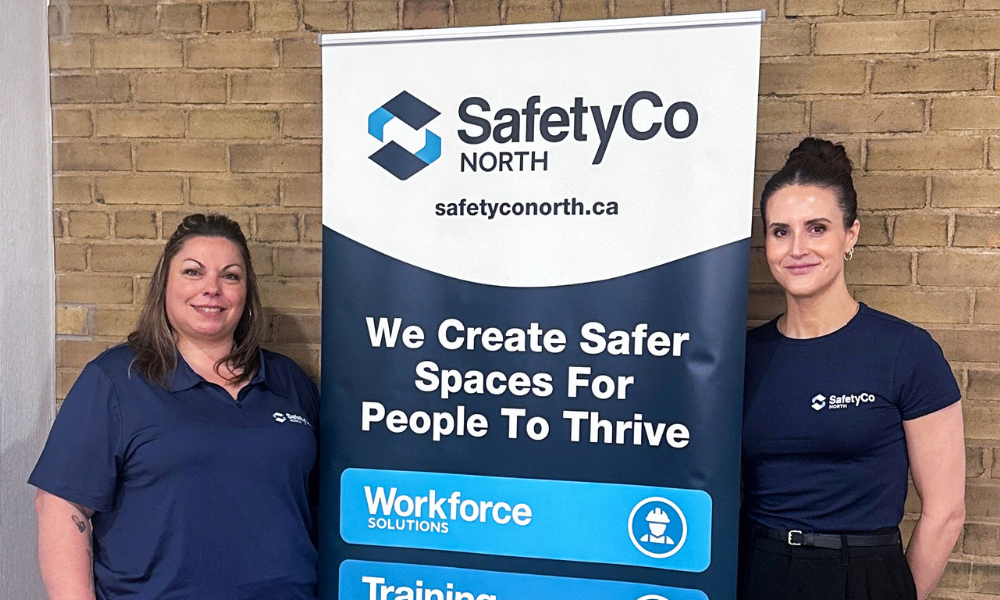Since its founding in 1976, CGI has been expanding rapidly. As companies around the globe struggle to navigate an endless wave of change in technology and business, demands for both technical and business
skills continue to grow. The CGI workforce is increasingly expected to know more to provide the quality service that clients have come to expect.
We always have had a strong belief that our members (CGI’s employees) are the key element to our success and we pride ourselves on a culture that promotes professional and personal development. But as client demands increase, traditional training methods become more time consuming and costly and do not adequately address the continuously shifting needs of the market. Additionally, increasing global requirements, employee mobility, and lost revenue during training time all contribute to the need for a dynamic development program.
Early on, we saw the importance of focusing on an alternative approach, bringing learning to the desktop of all our employees for continuous, on-thejob development. While early efforts at self-training provided marginal improvements, members continued to view training as an offsite event. The acceptance of e-learning did not happen overnight. Yet as the e-learning industry evolved, so did our offerings.
In 2005, we partnered with SkillSoft to create a global learning program that helps members embrace on-the-job learning. By demonstrating how easily learning can be woven into the work day, we have changed members’ expectations. The global learning program offers our professionals an online tool box focused on technical, business, and managerial development that provides access to online courses, live chats, mentoring, videos, certification test preparation, and an extensive online library of technical and business books.
This multi-faceted approach to a wide range of up-to-date resources and delivery options gives our members choices that best meet information needs, time constraints, subject matter requirements, and learning preferences. It enables them to continually increase their levels of expertise by making development an everyday experience.
The upshot is that members have discovered that e-learning helps them to work better and smarter, allowing them to provide quality services and value to help clients adapt as their industries change. And, in the process, it allows CGI to continue to grow as a leader in providing IT and business process services to top commercial and government institutions.
An added benefit is that our employment brand is highly regarded among quality professionals. This enables us to attract and retain top talent. Our emphasis on continuous learning empowers our professionals to set their career objectives, pursuing professional development consistent with the company’s goals and participating in building a world-class company.
In the last ten years, CGI has grown from a workforce of 2,000 professionals to 27,000, operating in 100 offices in 16 countries and generating a 2007 revenue of $3.7 billion. Today, we are recognized as an employer of choice, continually ranked as one of Canada’s top employers and IT services companies.
More than 30 years of continuous growth is a testament to the confidence clients place in the firm and to the dedication and knowledge of our members. CGI’s professionals define success by exceeding clients’ expectations and helping them achieve superior performance.
In 1991, in collaboration with partners, Patrick Cowan started Optel PML Telecommunication Consultants,which was acquired by CGI in 1996. As a CGI vice-president, Patrick was first responsible for infrastructureand e-commerce consulting services, then in 2003, he moved to CGI’s corporate marketing as vice-president, marketing – outsourcing. Since 2005, Patrick has been at the helm of CGI’s Leadership Institute. Its mission is to provide CGI professionals with the best practices and education to ensure the continuous development of quality leadership, inspired by CGI’s roots and traditions. Patrick is a member of the board of directors of Technocompétences (Emploi Québec - sector committee for the information and communication technology workforce). He is also a member of the Education/Training/Labor committee of the Fédération des chambres de commerce du Québec (FCCQ).
skills continue to grow. The CGI workforce is increasingly expected to know more to provide the quality service that clients have come to expect.
We always have had a strong belief that our members (CGI’s employees) are the key element to our success and we pride ourselves on a culture that promotes professional and personal development. But as client demands increase, traditional training methods become more time consuming and costly and do not adequately address the continuously shifting needs of the market. Additionally, increasing global requirements, employee mobility, and lost revenue during training time all contribute to the need for a dynamic development program.
Early on, we saw the importance of focusing on an alternative approach, bringing learning to the desktop of all our employees for continuous, on-thejob development. While early efforts at self-training provided marginal improvements, members continued to view training as an offsite event. The acceptance of e-learning did not happen overnight. Yet as the e-learning industry evolved, so did our offerings.
In 2005, we partnered with SkillSoft to create a global learning program that helps members embrace on-the-job learning. By demonstrating how easily learning can be woven into the work day, we have changed members’ expectations. The global learning program offers our professionals an online tool box focused on technical, business, and managerial development that provides access to online courses, live chats, mentoring, videos, certification test preparation, and an extensive online library of technical and business books.
This multi-faceted approach to a wide range of up-to-date resources and delivery options gives our members choices that best meet information needs, time constraints, subject matter requirements, and learning preferences. It enables them to continually increase their levels of expertise by making development an everyday experience.
The upshot is that members have discovered that e-learning helps them to work better and smarter, allowing them to provide quality services and value to help clients adapt as their industries change. And, in the process, it allows CGI to continue to grow as a leader in providing IT and business process services to top commercial and government institutions.
An added benefit is that our employment brand is highly regarded among quality professionals. This enables us to attract and retain top talent. Our emphasis on continuous learning empowers our professionals to set their career objectives, pursuing professional development consistent with the company’s goals and participating in building a world-class company.
In the last ten years, CGI has grown from a workforce of 2,000 professionals to 27,000, operating in 100 offices in 16 countries and generating a 2007 revenue of $3.7 billion. Today, we are recognized as an employer of choice, continually ranked as one of Canada’s top employers and IT services companies.
More than 30 years of continuous growth is a testament to the confidence clients place in the firm and to the dedication and knowledge of our members. CGI’s professionals define success by exceeding clients’ expectations and helping them achieve superior performance.
In 1991, in collaboration with partners, Patrick Cowan started Optel PML Telecommunication Consultants,which was acquired by CGI in 1996. As a CGI vice-president, Patrick was first responsible for infrastructureand e-commerce consulting services, then in 2003, he moved to CGI’s corporate marketing as vice-president, marketing – outsourcing. Since 2005, Patrick has been at the helm of CGI’s Leadership Institute. Its mission is to provide CGI professionals with the best practices and education to ensure the continuous development of quality leadership, inspired by CGI’s roots and traditions. Patrick is a member of the board of directors of Technocompétences (Emploi Québec - sector committee for the information and communication technology workforce). He is also a member of the Education/Training/Labor committee of the Fédération des chambres de commerce du Québec (FCCQ).





